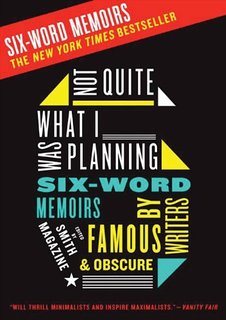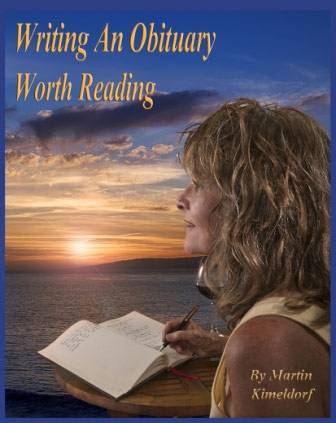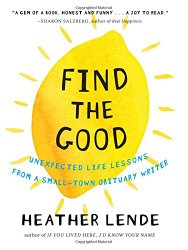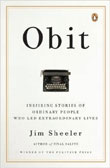How to Write and Give a Eulogy
David McConkey
Here are some ideas for writing and giving a eulogy.
An obituary can serve as an inspiration or background reference for a funeral eulogy. I have even attended funerals where the entire obituary from the newspaper was read out as the main part of the eulogy. So, the better the obituary, the better the eulogy.
First, some definitions. (Adapted from dictionary.com.)
Obituary - a notice (for example in a newspaper) of a person's death, often with an account of their life and work.
Eulogy - a laudatory speech or written tribute, especially praising someone who has died.
Elegy - a funeral poem or song.
Epitaph - a commemorative inscription on a tombstone. Also: a brief poem or statement in praise of a deceased person.
Obsequy (plural obsequies) - funeral rite or ceremony. Usually used in the plural.
So, while an obituary is a written form, the eulogy is usually spoken, especially at a funeral. Preparing a eulogy should follow a similar path as writing an obituary, as detailed elsewhere on this website. The eulogy, of course, has the usual added component of being said aloud. The performance aspect can be definitely difficult, especially for those not used to public speaking and considering the emotional timing.
For a look at eulogies in a larger context, see Helping Families Deal with Death "Most Satisfying Work" for Funeral Celebrant.
An excellent free resource on how to write and give a eulogy has been created by Co-operative Funeral Care in the U.K. This guide, available for free download in PDF format, is entitled Well Chosen Words: How to Write a Eulogy. This booklet has several sections on preparing a eulogy: gathering your thoughts about the deceased and the anticipated audience; organizing and writing your ideas into a eulogy; and suggestions for eulogy public speaking.
“Eulogies are for everyone. They are a reminder that each of us leads a life of special interest and value, and that each of us is unique, with our own special gifts,” says Andrew Morton, Britain’s Poet Laureate, in the Foreword to Well Chosen Words. “The eulogist’s task is to bring the deceased into the mind’s eye of the congregation – and to let us remember their voice and their manner, to let us share their interests, to let us appreciate their qualities, to let us enjoy their company a moment longer.”
"Eulogies are the most moving kind of speech,"
writes speechwriter Peggy Noonan, in her book about working for
President Ronald Reagan, What
I
Saw at the Revolution. "It is a challenge to look at a
life and organize our thoughts about it and try to explain to
ourselves what it meant, and the most moving part is the element of
implicit celebration. Most people aren't appreciated enough . . . No
one throws ticker tape on the man who chose to be faithful to his
wife . . . All this anonymous heroism. A eulogy gives us a
chance to celebrate it."
Tips for Writing and Giving a Eulogy
- Use this website. As with an obituary, a eulogy should be accurate and lively. Consult Obituary Writing Tips, Obituary Template, Obituaries - Delicate Questions, Write a Life Story and Obituary Writing Pitfalls for general ideas in preparing to write a eulogy.
- Plan for a presentation of a few minutes. As a guideline, for a five-minute spoken eulogy, write 500 words.
- Think about the organizing structure. Several different approaches to organizing your material when writing a eulogy are suggested in the booklet Well Chosen Words. These are: chronological (from youth to old age); reverse chronological (start with the most recent stage of life); summarizing in three points; or using one inclusive theme.
- Write for speaking. Avoid a formal written approach; write as you would speak.
- Consider using notes only. Accomplished speakers often use only notes in point form to create a more conversational style. Reading a text verbatim can sound stilted and unnatural. However, reading verbatim can be used effectively for the less experienced public speaker, to overcome nervousness, or to prevent being overwhelmed with emotion. If using a poem or other quotation, read from a printed text (unless you have it exactly memorized).
- Practice. Rehearse what you are going to say. Keep in mind that your audience will be sympathetic. Speak deliberately. Speak slowly. Have a glass of water handy. Breathe deeply.
- Have a standby. If
you are feeling too nervous or emotional, give your eulogy to
someone else to give. That person can be asked beforehand to read
it, or at least be ready to step in if needed. (This person could
be the funeral
celebrant.)
See Also:
"Eulogy"
on Amazon.com (on
Amazon.ca)
"Funeral
Readings / Poems"
on
Amazon.com (on
Amazon.ca)
Well
Chosen Words: How to Write a Eulogy An excellent free
guide.
On
Speaking
Well: How to Give a Speech With Style, Substance, and Clarity by political speechwriter Peggy
Noonan.
Death and Creating a Life of Well-Being, Wisdom, and Wonder
Writing
Your Own Obituary Offers Chance for Reflection
Helping
Families Deal with Death "Most Satisfying Work" for Funeral
Celebrant
Memoir
Writing: Ten Tips
More From Obituary Guide:
- Writing Your Own Obituary Offers Chance for Reflection
- How to Write a Legacy Letter (Ethical Will)
- A Family History Writing Workshop
- Helping Families "Most Satisfying Work" for Funeral Celebrant
- Be Prepared: Will, Health Care Directive (Living Will), and More
Books You May Find of Interest:
Not Quite What I Was Planning:
Six-Word Memoirs

Writing an Obituary Worth Reading:
A Guide to Writing a Fulfilling Life Review

Find the Good:
Unexpected Life lessons From a Small-Town
Obituary Writer

Having the Last Say:
Capturing Your Legacy in One Small Story

Obit:
Inspiring Stories of Ordinary People Who Led Extraordinary Lives
For All Time:
A Complete Guide to Writing Your Family History

Thrive:
The Third Metric to Redefining Success and Creating a Life of
Well-Being, Wisdom, and Wonder

Press Ctrl + D to Bookmark this page

